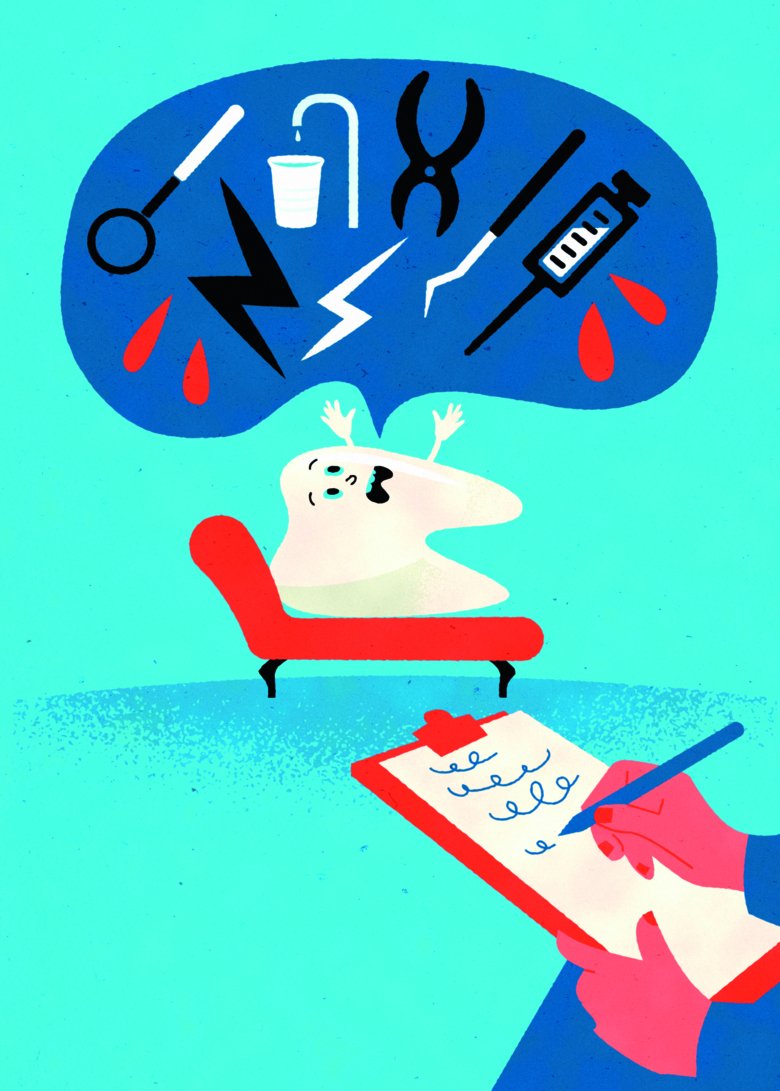Odontophobia leads to poorer dental health
One in five adult Swedes say that they experience some form of anxiety when going to the dentist. Many do however manage to deal with their fear to a sufficient extent. But for those experiencing the most intense fear, the consequences can be dire.

Text: Fredrik Hedlund, first published in Swedish in Medicinsk Vetenskap No 4/2019
“It is estimated that between four and five per cent of the population suffer from severe anxiety, or a phobic fear, which causes them to avoid going to the dentist even when they need to,” says Robert Schibbye, trained psychologist and doctoral student at the Department of Dental Medicine, Karolinska Institutet.
He tells us that odontophobia (dental anxiety) that is this severe is almost always caused by past negative experiences with dental care or health care. The problem is that avoiding dentist appointments often leads to what has been called the vicious spiral of odontophobia.
“Once you eventually make it to the dentist, the problems are often so serious that the treatment becomes unpleasant, which causes new trauma, which in turn reinforces their odontophobia. You get caught in a vicious spiral of negative experiences and avoidance caused by fear,” he says.
Avoiding dental care
The largest health-related concern with odontophobia is what avoiding dental care might lead to.

“We can all relate to fear and it is only natural to avoid things that scare you. If you avoid spiders or snakes for example, it might make you uncomfortable for a moment or you might miss out on social activities, but if you avoid dental care, it will lead to problems with your teeth and health. You will not receive the treatment you need,” says Robert Schibbye.
That is why it is important to be able to treat and cure the fear. And that is possible. Cognitive behavioural therapy, or CBT, has proven effective.
“Odontophobia is classified as what is called a specific phobia, a kind of phobia which only CBT has proven effective against. This is strongly supported by the research,” says Robert Schibbye.
One problem however is access to the treatment, which is dependant on the availability of trained personnel, of which there are few. That is why Robert Schibbye and his colleagues have started an internet-based odontophobia treatment for children and teenagers between the ages of 8 and 15.
“Internet-based CBT increases access to a treatment method which has been proven effective. This way, more people can be helped,” he says.
Handle an injection
They are currently conducting a randomised, controlled treatment study to measure its effectiveness. In a previous study, they saw how six out of ten people were able to handle an injection in their mouth, something they were unable to do previously, and more than half were cured of the specific phobia which they had been diagnosed with.
An interesting effect of breaking the negative spiral of bad experiences in the dentist’s chair is that the patients then go on to continuously make improvements themselves.
“We see additional improvement after the end of treatment. One year after the open study, we can see that the participants are still improving. They go to their dental appointments and now have positive experiences, which diminishes their fears. The goal is to establish a lifelong, good relationship with dental care,” says Robert Schibbye.
